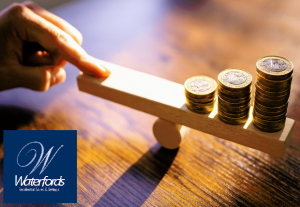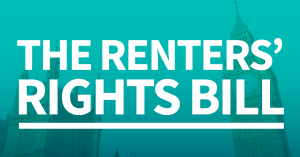Step-by-Step Guide for First-Time Buyers
Buying your first home is an exciting milestone, but it can also be overwhelming. At Waterfords Estate Agents, we understand that navigating the world of property can feel daunting, especially for first-time buyers. That’s why we’ve put together this simple, step-by-step guide to help you through the process of buying your first home.
Step 1: Assess Your Finances
Before you start house hunting, it’s essential to understand your financial situation. Take time to assess your income, expenses, and savings. Your budget will determine the price range of homes you can afford, and it’s crucial to be realistic at this stage.
- Deposit: The size of your deposit will play a significant role in securing your mortgage. The more you save, the more likely you are to secure a better deal. First-time buyers can often secure a mortgage with a 5% deposit, though 10% is a more common amount.
- Credit Score: Lenders will also look at your credit score when deciding how much they’ll lend you. Ensure your credit score is in good shape by paying off any outstanding debts and checking for any errors on your credit report.
- Stamp Duty: Don’t forget about additional costs like stamp duty, which is a tax on property purchases. First-time buyers can often benefit from stamp duty exemptions or discounts.
Step 2: Get a Mortgage Agreement in Principle
Once you’ve assessed your finances, it’s time to speak with a mortgage advisor or broker. They’ll help you get a mortgage agreement in principle (AIP), which is a statement from a lender confirming how much they are willing to lend you based on your financial situation.
Having an AIP gives you an advantage when you start viewing homes, as it shows sellers that you’re serious and can afford the property. It also helps you set a realistic budget.
Step 3: Start House Hunting
Now comes the fun part: finding your dream home! Start by narrowing down your search based on location, price range, and the type of property you want. At Waterfords, we have a wide selection of properties, from cozy flats to family-sized homes, and our experienced team can guide you to the best options within your budget.
- Consider Location: Think about your long-term needs. Are you near family? What’s the commute like for work? Is the area well-connected by public transport or near amenities like schools and shops?
- View Multiple Properties: Don’t settle on the first property you see. Visit a variety of homes to get a sense of what you like and dislike.
Step 4: Make an Offer
Once you’ve found the property you like, it’s time to make an offer. You can make an offer through your estate agent (like us at Waterfords), and they will communicate with the seller. Be prepared for negotiations. Sellers may come back with a counteroffer, so don’t be discouraged if the first offer isn’t accepted.
Remember, making a fair offer is essential. Offering too low can risk losing out on the property, while offering too high could mean you’re overpaying.
Step 5: Have the Property Surveyed
Once your offer has been accepted, it’s time to have the property surveyed. A homebuyer’s survey will give you an in-depth look at the condition of the property and can uncover any potential issues like damp, structural problems, or faulty wiring.
You can then use the results of the survey to negotiate with the seller if any repairs are needed or if the price needs to be adjusted.
Step 6: Finalize Your Mortgage
With the survey complete and any negotiations settled, it’s time to finalize your mortgage application. Your lender will require detailed information about the property and your finances, and they may conduct a valuation of the home.
Once your mortgage is approved, you’ll receive an official offer, and it’s time to move forward with the paperwork.
Step 7: Exchange Contracts and Completion
After everything is in place, you’ll exchange contracts with the seller. At this point, a deposit (typically 10% of the purchase price) is paid. The sale becomes legally binding, and both parties commit to completing the transaction.
The final step is completion, where the property officially becomes yours. On completion day, you’ll pay the remaining balance, and the keys to your new home will be handed over!
5 Common Questions and Answers for First-Time Buyers
- How much deposit do I need? The minimum deposit required is usually 5%, but many lenders prefer 10%. The more you save, the better the mortgage deal you may receive.
- What is stamp duty, and do I need to pay it? Stamp duty is a tax you pay on the purchase of a property. First-time buyers may be exempt or pay a reduced rate depending on the property price and location. Check the current rules for up-to-date information.
- Can I buy a house without a credit history? It’s possible, but it can be more challenging. You may need to apply for a mortgage with a specialist lender or look into government schemes aimed at helping first-time buyers with no credit history.
- What happens if the property survey finds issues? If the survey reveals issues, you can either negotiate the price, ask the seller to fix the problems before completion, or decide to walk away from the deal if the problems are too severe.
- How long does the buying process take? The process typically takes 8 to 12 weeks, depending on factors like the complexity of the transaction and the responsiveness of all parties involved. However, it can be quicker or slower in certain cases.





